Last updated on April 16th, 2023
Does Pea Protein Cause Acne? The answer to this question is a resounding no. There is currently no scientific evidence to suggest that pea protein causes acne.
“What do you do when you wake up in the morning and you have a big pimple on your face?” This question is asked by many men and women every day as they look for answers to prevent and even cure acne.
Many people have heard about pea protein and its benefits for muscle recovery and building lean muscle mass. But did you know that pea protein can also help reduce acne?
Hungry for the Best Vegan Products? Discover Our Top Picks You Can't Resist! 🥬
Approved and Reviewed
Our Best Pick: Naked Pea Protein Powder is made from a single ingredient, yellow peas, making it vegan and free of any artificial sweeteners or additives. With a high protein content per serving, it is an effective way to supplement your protein intake.
Our Second Best Pick: Anthony’s Premium Pea Protein Powder is a great alternative protein source for vegans and vegetarians. It’s Gluten-Free, Unsweetened, and Unflavored and has no artificial additives.
It has been found that pea protein contains essential amino acids that are not naturally present in the human body.
It is a complete protein that can replace meat or dairy products in your diet.
What Is Pea Protein?
Pea protein is a protein source from green or yellow peas that is highly digestible and low in carbohydrates. The protein in pea protein is almost 50 percent lysine, which is the most easily absorbed amino acid in the human body.
It is considered an excellent alternative to milk proteins, as it provides similar amino acids. Pea protein is great for athletes and dieters because it gives you the protein your body needs without consuming as many calories.
pea protein compared to other plant-based proteins:
Pea protein is considered a plant-based protein because it is made from peas. There are other plant-based proteins such as brown rice, hemp, soy, quinoa, and amaranth.
Pea protein has low-calorie content and is considered a complete protein because it contains all the essential amino acids. It also has a high level of fiber which can help with weight loss goals.
Additionally, pea protein is a good source of antioxidants which can help to protect cells from damage.
Some Other Best Plant-Based Protein Powder You Can Try
11 Best Pea and Rice Protein Powders for Vegans: Ultimate Guide 2023
Does Pea Protein Cause Acne?
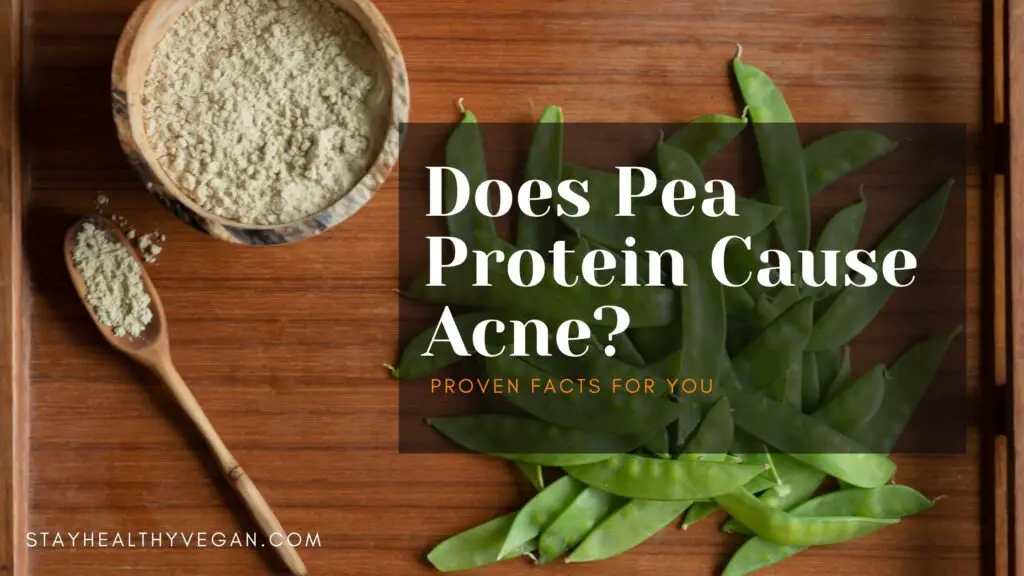
Does plant-based protein cause acne? Pea Protein has become the popular choice for a vegan diet. More and more people are adopting this lifestyle, causing many nutrition brands to make available different kinds of pea protein powders.
While Pea protein powders have been linked to weight loss and muscle building, there is a lot of debate on whether pea protein is causing acne.
There is a lot of confusion about pea protein and acne. Some people believe that it causes acne, while others think that it doesn’t have any effect.
The truth is that there is no scientific evidence linking pea protein with acne. However, there are some studies that suggest that it might be beneficial for the skin.
Pea protein is a good source of fiber, which can help to reduce the risk of acne.
Additionally, it contains amino acids and other nutrients that can help to improve the texture and tone of the skin., so Does Pea Protein Cause Acne? The answer is no.
What is the Difference Between Pea Protein and Dairy Protein?
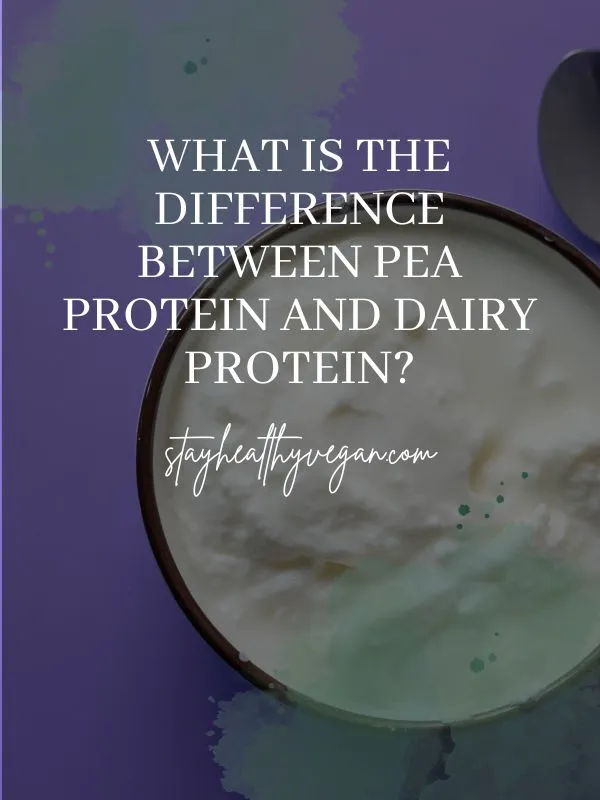
The main difference between pea protein and dairy protein is that pea protein is a plant-based protein, whereas dairy protein is derived from milk. Pea protein is also a more affordable option than dairy protein.
- Pea protein is dairy-free:
Protein is an important component of muscle growth and repair, so it’s important to find a protein source that is both healthy and dairy-free.
One such option is pea protein, which is a plant-based protein that has many of the same benefits as dairy proteins. Pea protein can be used in place of dairy proteins in recipes or added to smoothies for extra protein.
- Pea protein is vegan:
Pea protein is a plant-based source of high-quality protein that is vegan and gluten-free. Pea protein can be used in many recipes as a replacement for animal protein, and it has a large concentration of essential amino acids.
- Pea protein is a plant-based protein:
Protein from pea is a protein derived from plants that have been found to possess the highest absorption and quality. It’s also eco-friendly since it doesn’t require any land or water to make.
- Pea protein is hypoallergenic:
There’s good news for those with food allergies: pea protein is hypoallergenic. This plant-based protein is made up of mostly amino acids, which are the building blocks of proteins.
Pea protein is also low in calories and fat, making it a healthy option for those who are thinking of losing weight or maintaining their current figure.
While pea protein does have some unique flavors, many people find that it mixes well with other ingredients and doesn’t taste too different from other types of protein sources.
- Pea protein is a non-GMO protein:
Protein is an important nutrient that the body needs in order to grow and function properly. Protein can be found in different types of foods, but one of the most popular sources is animal protein.
However, not all proteins are created equal. Some are made from animals, while others are plant-based.
One type of plant-based protein that has become increasingly popular is pea protein. Pea protein is a non-GMO protein made from peas and does not contain any animal products or gluten.
This makes it a good option for people who have food allergies or intolerances, as well as those who are vegan or vegetarian. Pea protein also offers some unique benefits compared to other types of proteins.
- Pea protein is gluten-free:
Protein is important for muscle growth and maintenance, so it’s important to make sure your protein sources are free of gluten.
Pea protein is a great option because it’s low in calories and contains all eight essential amino acids, making it a top choice for those following a gluten-free diet.
How Does Pea Protein Help Build Muscle?
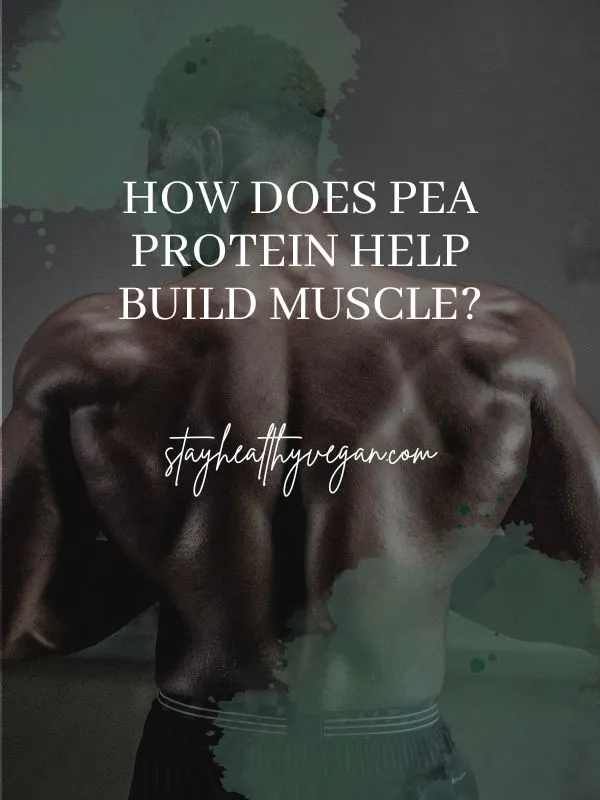
Pea protein is a great source of plant-based proteins, which can help build muscle. The protein found in peas is high in the amino acid L-arginine, which helps promote muscle growth and development.
Pea protein also contains other essential amino acids, vitamins, minerals, and antioxidants that can support your body’s health.
How Does Pea Protein Affect Skin Health?
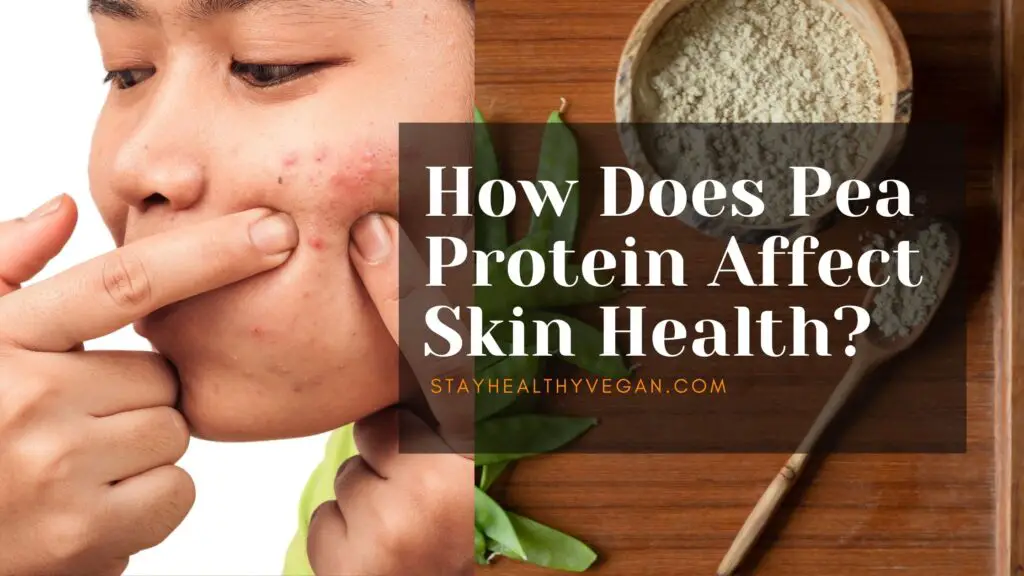
Protein from peas is a vegan protein that is becoming increasingly popular due to its many health benefits.
Pea protein has been shown to be beneficial for skin health, as it can help improve the appearance of skin tone and decrease the appearance of wrinkles and age spots.
Pea protein also helps improve the absorption of other nutrients into the skin, which can lead to better skin quality overall.
What Are the Benefits of Pea Protein?
There are lots of benefits to consuming pea protein. Pea protein is a high-quality source of protein and offers a huge number of health benefits.
- Pea protein is a complete protein:
Pea protein is a whole protein because it includes all the essential amino acids, making it an affordable and convenient origin of protein for athletes and vegetarians alike.
Additionally, pea protein has a low glycemic index, meaning it is slowly absorbed into the body and doesn’t cause high blood sugar levels like other fatty sources of protein.
- Pea protein is low in fat and calories:
Protein is an important nutrient for athletes and bodybuilders alike. However, plenty of protein powders on the market are high in fat and calories. Pea protein is a low-fat, low-calorie option that can be used to supplement your diet.
Pea protein is also gluten-free and has a clean label, making it a good choice for those with food allergies or intolerances.
- Pea protein is high in fiber:
Pea protein is high in fiber, making it a great source of nutrients for people who are looking to increase their intake. Fiber aids to keep you feeling full and satisfied longer, which can help with weight loss goals.
Additionally, pea protein is an affordable and accessible form of protein that can be used in many different recipes.
- Pea protein is a large source of iron and magnesium:
Pea protein is a good source of both iron and magnesium, two minerals that are essential for healthy bones and muscles.
Iron is especially important for women, young children, and men because it helps to form red blood cells.
A vegetarian or vegan diet that includes at least two servings of peas per week can help to ensure that you’re getting enough iron.
Magnesium helps to maintain healthy nerve function, blood sugar levels, and muscle contractions.
It’s also important for preventing heart disease, osteoporosis, and some forms of cancer.
- Pea protein has a high biological value:
Pea protein is a high-biological value protein that offers many benefits for athletes and consumers.
It is an excellent source of essential amino acids, has anti-inflammatory properties, and has been linked with reducing the risk of chronic diseases.
Additionally, pea protein is also a sustainable crop that can be grown in a variety of climates.
- Pea protein is easy to digest:
Pea protein is an excellent aid of plant-based protein and is easy to digest. It contains all the essential amino acids, making it a good choice for vegetarian and vegan diets.
Additionally, pea protein is high in fiber and antioxidants, which can support cognitive health.
Is Pea Protein Right For Me?
When it comes to protein, many people think of whey as the go-to choice. After all, whey is a well-known and highly popular source of protein.
However, pea protein may be a better option for some people. Here’s why:
Pea protein is for those who are lactose intolerant or have dairy allergic problems.
Pea protein is a complete protein – that means it contains all nine essential amino acids. This makes it a well choice for those who are looking to boost their overall muscle growth and recovery.
Additionally, pea protein is also low in carbs and calories, making it an ideal supplement for weight loss enthusiasts. So if you’re looking for a high-quality and affordable source of protein, pea protein may be the perfect option for you!
Does Pea Protein Have Side Effects?
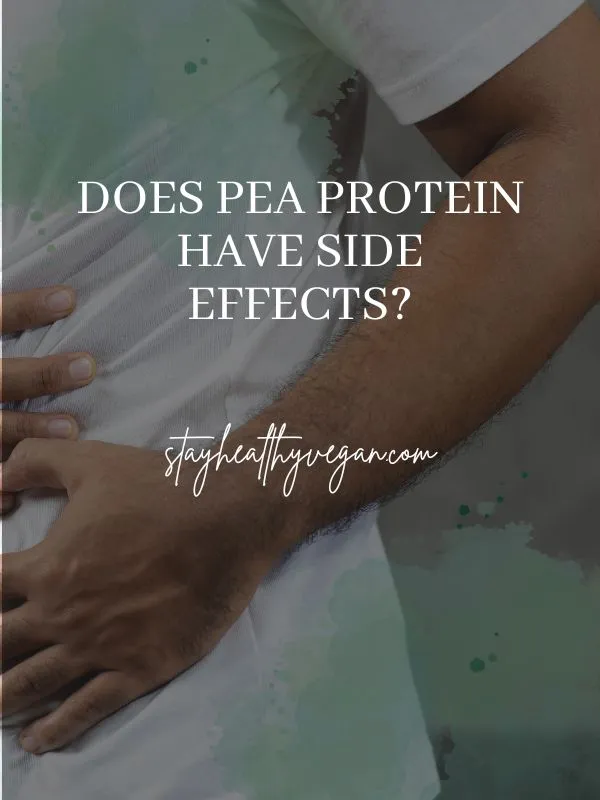
Protein from peas is a plant-based protein that provides numerous health benefits. However, it may also have side effects, depending on how it is used.
Pea protein is safe to consume, as long as it is consumed in moderation.
Pea protein can be taken as a supplement or consumed as part of the food. If you are considering using pea protein, be sure to talk to your doctor about any potential side effects.
Is Pea Protein Safe During Pregnancy?
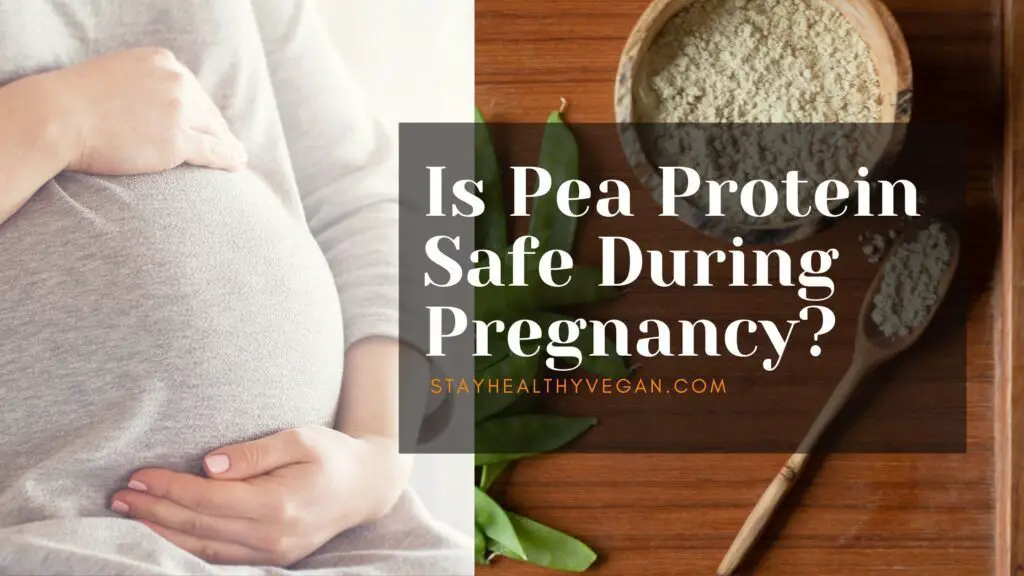
Protein is an essential nutrient for both pregnant women and their developing babies. However, there are a few things to keep in mind when it comes to protein during pregnancy.
- First, make sure that the protein you’re eating is from plant-based sources.
- Second, be sure to get enough of the essential amino acids your body needs.
- Third, avoid foods that are high in saturated fats and cholesterol.
- Forth, Pea protein may also offer health benefits during pregnancy, such as reducing the risk of gestational diabetes and hypertension.
- Finally, talk to your doctor about any specific concerns you may have about protein during pregnancy.
Pea protein is a plant-based protein that is often recommended for pregnant women because it has all the essential amino acids that can be beneficial to the fetus.
Some studies have found that pea protein can be a source of beneficial nutrients for pregnant women.
Does pea protein cause gas?
If you’re wondering if pea protein causes gas, the answer is no. In fact, a lot of people mistakenly believe that eating peas will cause them to bloat and make them gassy. This isn’t actually the case at all.
Peas are a great source of protein and they don’t cause gas in the same way that other foods do.
Is Pea Protein Good For Your Hair?
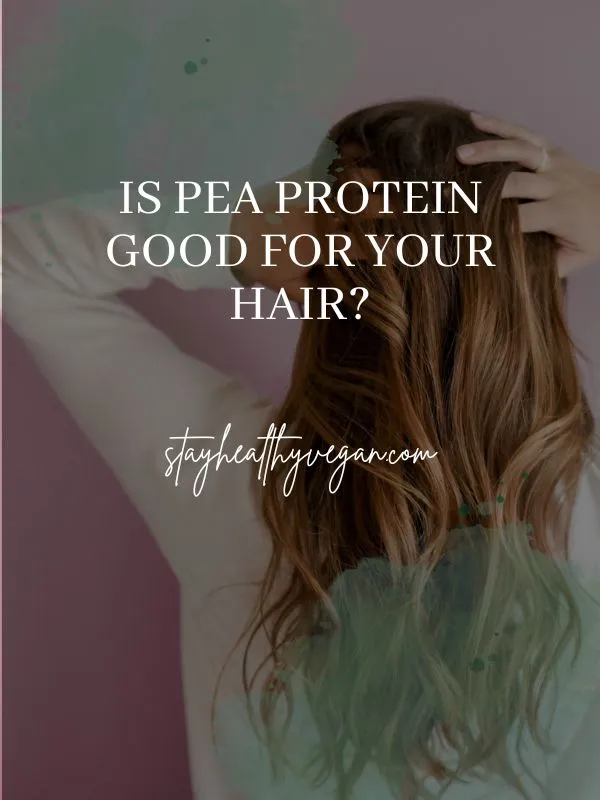
Does pea protein cause hair loss? Are you thinking of a plant-based protein that can help improve your hair health? Then you may want to consider pea protein.
Pea protein is a valuable component of a well-rounded diet that can promote healthy hair. This is because pea protein is abundant in amino acids, the fundamental constituents of protein.
Adequate protein is essential for the development and upkeep of strong, vibrant hair. When protein is lacking in the diet, hair may become brittle and weak.
Cysteine, an amino acid found in pea protein, is another key player in hair health. It is vital for keratin synthesis, a protein that comprises hair, skin, and nails.
All in all, incorporating pea protein into your diet and using hair care products that contain it may contribute to better hair health.
Nevertheless, keep in mind that hair health is affected by numerous other factors, such as heredity, lifestyle habits, and environmental conditions.
In conclusion, the available evidence does not support the claim that pea protein causes acne.
Additional research is needed to decide if there is a link between pea protein and acne. If you are considering adding pea protein to your diet, consult with a healthcare professional to discuss the possible benefits and risks.
We have done our best to give you information about Does Pea Protein Cause Acne? However, it is up to you to decide if you want to use it.
FAQ:
Is pea protein a common allergen?
Pea protein is not considered a common allergen, but some individuals may be allergic to peas or other legumes.
Can pea protein affect hormones?
Pea protein contains phytoestrogens, which can affect hormone levels in some individuals. However, the effect is generally mild and varies from person to person.
Is pea protein good for vegans?
Pea protein is an excellent source of plant-based protein and is a popular choice for vegans and vegetarians.
How does pea protein affect the skin?
Pea protein is a source of essential amino acids that help build and repair skin cells.

